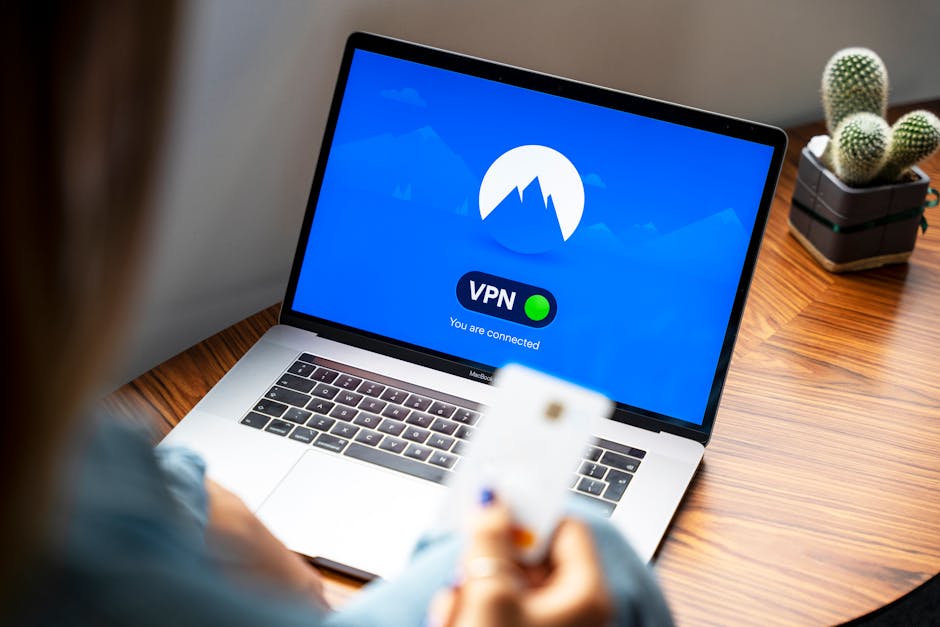The internet, right? It’s like this gigantic, super noisy market sometimes, full of folks shouting about their stuff. And, you know, for businesses trying to get a word in edgewise, especially new ones or even established ones just trying to keep up, it can feel like you’re constantly battling to be seen. You put up a website, you try to make it look good, but then you’re just sitting there, waiting for people to magically find it, which, normally, doesn’t really happen much, not without some kind of push. That’s where something like PPC Google comes into the picture, and trust me, even in 2025, it’s still very much a thing people talk about, and use a lot too, to get noticed. It’s essentially a way for your business to jump the line, in a good way though, and appear right when someone’s searching for exactly what you offer. This whole concept, what it is and how it works, it’s not as complicated as it sometimes might seem from the outside looking in, once you kinda get the hang of the basic idea of it. We’re gonna break down what “PPC Google” means for you, and why it stays pretty relevant, even with all the other fancy digital marketing stuff that pops up every other week.
So, What Exactly is This “PPC Google” Thing?
Alright, let’s get into what is PPC Google, properly. First off, “PPC” stands for Pay-Per-Click. That’s the core of it, really. You pay a fee, but only when someone actually clicks on your ad. Not for seeing it a bunch of times, just for the clicks. Which, for many, is a pretty sensible way to spend advertising money, because you’re paying for actual engagement, you know, someone actively showing some kind of interest. The “Google” part, well, that’s just saying it’s happening on Google’s various platforms. And Google, as you likely know, has a ton of places where ads can show up.
When most people think of Google PPC, their brain goes straight to those little ads you see at the very top of the search results page. You type something into Google, like “best coffee maker 2025,” and bam, usually the first few results have a tiny “Ad” label next to them. Those are PPC Google ads, plain and simple. Businesses are bidding to have their product or service appear right there for that specific search term. But it’s not just the search results, not at all. Google’s advertising system is much bigger than just that one spot, it covers many areas where ads can show up, giving advertisers a lot of options.
You’ve also got the Google Display Network, which is this giant collection of millions of websites, apps, and even YouTube videos, all where Google can put ads. These aren’t usually text ads, though they can be, but more often they’re banner ads, image ads, sometimes even video ads that pop up while you’re browsing your favorite news site or watching a cat video. These display ads, they work a bit differently, often trying to catch people’s attention when they’re not actively searching, but maybe just chilling online. Then there’s YouTube itself, owned by Google, which has its own whole world of video ads – those skippable ones, the non-skippable ones, the ones that show up in the sidebar. All of these, the search ads, the display ads, the YouTube ads, they all fall under the big umbrella of Google Ads, and they’re all examples of how PPC Google works. It’s quite a widespread operation, letting businesses get their messages out there in lots of different spots on the internet, which is pretty useful for getting lots of people to see what you offer.
How Google’s Ad System Actually Works (The Nitty-Gritty, Kind Of)
So, now we know what is PPC Google, broadly, but how does Google figure out whose ad shows up and when? It’s not just about whoever pays the most, which is a common misconception, people sometimes think that’s how it all happens. It’s actually a bit more complex, a little more nuanced, than just a simple highest bid wins kind of thing. Google has this whole system, a sort of complicated auction that happens in milliseconds every time someone types something into the search bar, or loads a webpage that shows Google ads.
At the heart of it, for search ads anyway, are keywords. These are the words or phrases people type into Google. If you sell artisanal dog biscuits, you might bid on keywords like “fancy dog treats,” “organic dog biscuits,” or “healthy snacks for dogs.” When someone searches one of those, Google looks for advertisers who’ve bid on them. That’s the starting point, getting your ads matched up with what people are actually looking for.
Then comes the bidding. Advertisers tell Google how much they’re generally willing to pay for a click on their ad for a particular keyword. This is called your “max bid.” But like I said, it’s not just the highest bid. Google also looks at something they call Ad Rank. This is a combination of your bid and your Quality Score. The Quality Score is Google’s way of judging how good your ad is. Is your ad copy (the words in your ad) relevant to the keyword? Does the landing page (where people go after clicking) give them what they expected? Is it a good experience? If your ad is super relevant and your landing page is great, Google might let you show up higher even if someone else bid a bit more, because Google wants its users to have a good experience, too. They don’t want to show a bad ad just because someone paid a few cents more, usually. This means, if you really put effort into making good ads and having a good website, you can sometimes beat out bigger spenders, which is pretty neat.
So, in very quick terms, when a search happens, Google checks all the bids from advertisers for those keywords, calculates their Quality Scores, and then, boom, decides who gets to show an ad and in what order. All of that happens in less time than it takes you to blink. And for display ads or YouTube ads, it’s a similar principle, but instead of keywords matching search queries, it’s often about targeting audiences based on their interests, demographics, or even what websites they’ve visited recently, usually to show ads that are more likely to be relevant to them.
Why People Still Bother with Google PPC in 2025
You might think, with all the social media marketing, and TikToks, and whatever new thing pops up next week, is PPC Google still a worthwhile thing to do? And the answer is, generally speaking, yes, a whole lot of businesses still find it to be a powerful tool for getting things done online. There are some really straightforward reasons why it continues to be a go-to strategy for many.
One big reason is visibility, and getting noticed fast. Unlike trying to rank organically in search results, which can take months and months of effort and waiting, PPC Google can get you onto the first page of Google pretty much instantly, assuming you set up your campaign right and have the budget for it. If you’ve got a new product, or a special sale that needs immediate attention, it’s a great way to put your message right in front of people right away, without much delay at all.
Then there’s the whole idea of targeting the right folks. With Google Ads, you’re not just throwing your message out into the void hoping someone catches it. You can be really specific. You can target people based on what they’re searching for, where they live, what time of day it is, their general interests, sometimes even their age or income level, within certain privacy constraints of course. This means your ads are being shown to people who are much more likely to be interested in what you have, which makes your advertising money go a lot further, in many cases. It’s like fishing in a specific, well-stocked pond rather than just casting your net into the entire ocean, you know?
Also, people really like that you can measure everything. With PPC Google, you get a ton of data. You can see how many people saw your ad, how many clicked it, how much each click cost you, and even, sometimes, what they did after they clicked, like if they bought something or filled out a form. This means you can see pretty clearly what’s working and what’s not, and then you can adjust things as you go, to make your campaigns even better. It’s not like putting an ad in a newspaper where you kind of just hope it worked; here you get actual numbers, which is very helpful for making decisions.
Finally, there’s the control over spending. With PPC, you set your own budget. You decide how much you want to spend per day or per month, and Google won’t go over that amount. You can start small, test things out, and then scale up if you see good results. You’re not locked into big contracts or guessing games with your money. This flexibility, this ability to turn things on and off, or tweak bids, it really does make it appealing for businesses of all sizes, from tiny local shops to huge corporations, it provides a very adaptable way to manage your marketing budget.
Getting Started with Your Own Google Ads (It’s Not That Scary, Honestly)
Okay, so if all this talk about what is PPC Google has made you think, “Hey, maybe I should give this a try,” you’re probably wondering where you even begin. And honestly, it’s less about being a super tech wizard and more about having a clear idea of what you want to achieve. The Google Ads platform, it looks a bit busy at first, maybe a little overwhelming with all the options, but once you poke around, it gets less confusing.
First thing’s first, you gotta figure out your goals. What do you want people to do when they click your ad? Do you want them to buy something? Sign up for your newsletter? Call you? Just visit a page on your website to learn more? Having a clear goal helps you set up everything else, because if you don’t know what you’re aiming for, how will you know if you hit it? So, define what a successful click looks like for your business, and that should be your primary focus.
Next up, picking your keywords. This is where you put yourself in your customer’s shoes. What would they type into Google if they were looking for what you offer? Don’t just guess; Google has tools, like its Keyword Planner, that can help you find good keywords and even show you how many people search for them. Be specific, but not too specific that no one ever searches for it. You want a good balance, keywords that are searched enough, but not so general that you’re competing with everyone and their mother, that’s important.
Then you write your ads. These are those little bits of text people see. Make them catchy, tell people why they should click your ad, and include a clear call to action, like “Shop Now” or “Get a Quote.” Make sure the ad text is relevant to the keywords you’re bidding on, and that it accurately describes what people will find when they click, don’t mislead them. Otherwise, they’ll just click away from your site, and you’ll have paid for nothing.
You also have to set your budget. Decide how much you’re comfortable spending each day or month. Google will try to spend that amount, spreading it out through the day. You can always change it later if you need to, up or down. It’s not set in stone, which is a relief for many, so you aren’t stuck if things change.
Finally, and this part is probably the most important for the long run, you have to monitor and tweak. You launch your ads, but your work isn’t done. You need to keep an eye on how they’re doing. Are people clicking? Are they doing what you want on your website? If not, maybe your keywords are off, or your ad copy needs work, or your landing page isn’t great. You normally adjust bids, try new ad variations, remove keywords that aren’t working well. It’s an ongoing process, not a “set it and forget it” kind of thing, which is a mistake some people make. But with a bit of patience and some regular checking, you can make your PPC Google campaigns really start to work for you, getting you those clicks that lead to actual results for your business.
So, when it comes down to it, this whole PPC Google business, it’s not some magic bullet, it’s a tool. A pretty powerful tool, really, for getting your business in front of people who are already looking for what you sell. It takes a little bit of learning, some trial and error, and usually, a consistent bit of effort to keep an eye on things, but the potential to connect with customers right when they’re ready to buy, that’s what keeps businesses coming back to it, year after year, even as new marketing methods come and go. It’s about putting your money where the clicks are, and those clicks, they can often lead to some real good things for your business, if you manage it right.
FAQ About What is PPC Google
Q1: What is PPC Google, simplified for someone just hearing about it?
A: Okay, so what is PPC Google? It’s basically a type of online advertising where you, as a business, only pay Google when someone actually clicks on your ad. So, you don’t pay just for your ad showing up, only for the clicks. These ads can appear in Google search results, on websites and apps that show Google ads, or even on YouTube videos, getting your stuff seen by people who are potentially interested, which is a pretty direct way to advertise.
Q2: Is PPC Google still effective in 2025, or is it old news?
A: Definitely not old news! What is PPC Google doing today? It’s still very much effective, even in 2025, for a whole lot of businesses. The reason is simple: people are still using Google to search for things, to watch videos, and to browse websites. So, being able to put your ad right in front of them when they’re actively looking for what you offer, or when they’re engaging with related content, that’s a really powerful way to get customers, and it works for many different kinds of businesses too.
Q3: How much money do I need to start with PPC Google?
A: That’s a good question people always ask about what is PPC Google and its costs. The nice thing about PPC Google is you can start with almost any budget. You set your daily or monthly spending limit, and Google won’t go over it. You could start with, say, $10 a day to test the waters, or much more if you’re a bigger company. It’s very flexible, meaning you don’t need a huge budget to begin with, which is handy for smaller businesses usually.
Q4: Can a small business really benefit from what is PPC Google?
A: Absolutely, yes! Small businesses can get a lot out of PPC Google. Because you can target very specific keywords, locations, or audiences, a small business can make sure their ads are seen by their local customers, or by people who are really specific about what they’re looking for. This helps small businesses compete with bigger ones by being super focused, and it allows them to get immediate visibility which is sometimes hard to get otherwise, you know, when you’re just starting out.










